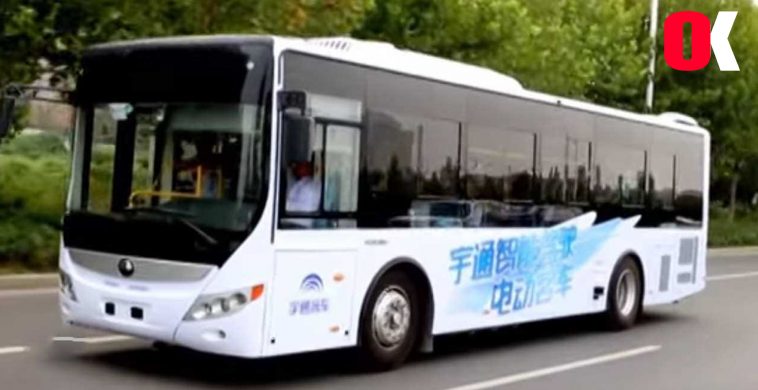China’s first automatic bus line revealed
On Monday, China first automated bus line began commercial operation in Yongchuan District. Chongqing City with passengers boarding a red Baidu Robobus bus for city travel.
A middle-aged female passenger told the “Chongqing Morning Post”: “I didn’t expect the bus to run so smoothly. There was no shaking or sudden braking.” “The seat is very comfortable. I will definitely take the bus again.”
Robobus, developed by the Chinese technology giant Baidu, is a level 4 self-driving bus.
It is 5.9 meters long and can carry 19 passengers at a cruising speed of 40 to 60 kilometers per hour. Furthermore, Level 4 autonomous driving means that the vehicle can drive autonomously in most situations without the need for a human driver.
Baidu is using three buses to travel on a 10-kilometer two-way bus route, which has four stops. The interior of the bus is similar to that of an ordinary bus, and passengers can also use a bus card. There is a safety monitor on the driver’s seat for use in emergency situations. But the actual driving done by an artificial intelligence system.
Li Zhenyu, Baidu’s vice president and general manager explain about the company’s Intellectual Driving Group. The launch of China’s first autonomous driving bus line marks a major breakthrough in the commercialization of autonomous driving technology in the country.
In 2019, Yongchuan, an important connection point between Chengdu and Chongqing economic circle.
Furthermore, Baidu established a public test base for autonomous driving in western China.
Since 2013 Baidu has been investing in the bus autonomous driving sector. Its Apollo (Apollo) is the biggest leading platform for self-driving, it also include more than 210 partners, 55000 developers and 700,000 lines for open source code. The technology giant is also one of several Chinese technology companies that have launched automated taxi services for the public.
Teng Hongwei, secretary of the Yongchuan District Party Committee. In the future, self-driving aircraft will cover the entire region, and Yongchuan will become a model for demonstration and application of autonomous driving across the country.
Teng said the region will seek to cooperate with leading AI companies on smart transportation and medical pilot projects.
The company’s smart driving group Chongqing manager Xiong Zupin said that as an self driving bus operating on open roads. Robobus can easily cope with bus station scenes and complex urban road conditions. Fully meet the needs of normal public transportation operations.
Passengers can also book rides on Robobus through mobile apps such as Apollo Go, Baidu Maps and Yongchuan Public Service.
As a gateway to the southwest region and a major industrial base. Chongqing has one of the world’s largest IT industry clusters and one of the country’s largest automobile manufacturing bases. Its goal is to build itself into a famous smart city and smart manufacdturing powerhouse.
Consulting firm McKinsey said that China has the potential to become the world’s largest market for autonomous vehicles. McKinsey estimates that by 2040, autonomous vehicles will account for more than 40% of new car sales in the world’s largest automotive market.
FOUR REASONS TO STAY IN DORMITORY





GIPHY App Key not set. Please check settings